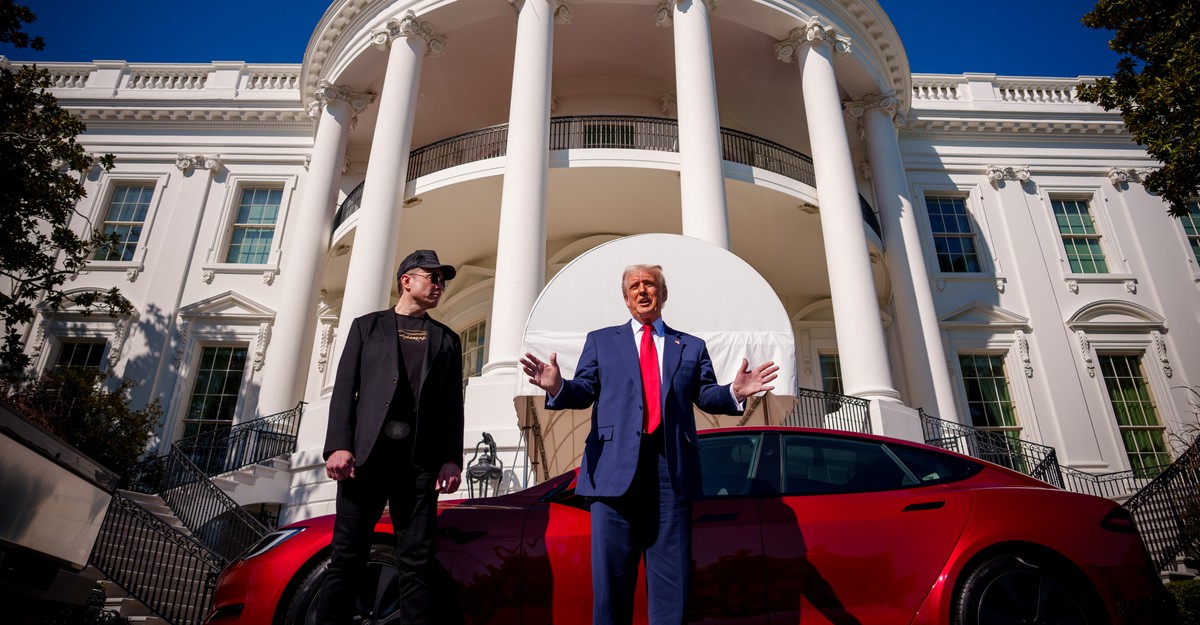From the Oval Office to the Showroom: Trump’s Unexpected Tesla Connection
The relationship between politics and commerce often emerges in surprising ways, and one of the most intriguing connections in recent history is the unexpected bond between Donald Trump and the world of Tesla sales. This unlikely intersection raises fascinating questions about branding, business strategy, and how political figures can shape consumer perceptions and market dynamics. In this article, we will delve into the nuances of this relationship, exploring how Trump’s influence extends beyond the political realm and into the automotive industry, particularly with Tesla.
Understanding the Tesla Phenomenon
Tesla, founded by Elon Musk, has revolutionized the automotive industry with its innovative electric vehicles (EVs) and a commitment to sustainable energy. The brand has garnered a cult-like following, appealing to environmentally conscious consumers and tech enthusiasts alike. Its impact on the automotive market is undeniable, with Tesla leading the charge in electric vehicle sales, pushing traditional automakers to adapt or risk obsolescence.
As Tesla continues to grow, its brand image has become closely tied to influential public figures, including Donald Trump. While Trump is more commonly associated with traditional industries like real estate and entertainment, his presidency and subsequent public persona have also had a significant impact on the automotive landscape.
Trump’s Political Brand and Its Connection to Tesla
Donald Trump’s political brand is characterized by a strong, often controversial presence. His administration’s policies were heavily focused on American manufacturing, job creation, and energy independence. This focus resonated with many Americans who value domestic production and the American economy. Interestingly, while Tesla is known for its high-tech, innovative approach, it also emphasizes American manufacturing, with its Gigafactories situated across the country.
Trump’s support for American-made products often aligns with Tesla’s mission to produce vehicles in the U.S. This connection is critical, as consumers increasingly gravitate towards brands that embody their values. For many, Tesla represents the pinnacle of American innovation in the automotive sector. This synergy between Trump’s political messaging and Tesla’s brand ethos has created an intriguing dynamic that influences consumer behavior.
The Influence of Political Figures on Automotive Sales
Political figures wield substantial influence over consumer behavior, often impacting market trends. Trump’s presidency saw a significant rise in nationalism and a push for “buy American” policies, which played into Tesla’s advantages. Several factors illustrate how political figures can sway automotive sales:
- Consumer Confidence: Political leaders can affect consumer confidence, which directly impacts purchasing decisions. Under Trump’s administration, the economy saw fluctuating levels of consumer confidence, driven by tax cuts and deregulation.
- Policy Changes: Policies favoring electric vehicles, such as tax incentives for EV buyers, can boost Tesla sales. Trump’s stance on energy independence and regulations surrounding fossil fuels also played a role in how consumers viewed electric vehicles.
- Brand Ambassadorship: The endorsement or criticism of a brand by a political figure can significantly affect public perception. Trump’s tweets and public statements regarding Tesla and Elon Musk have shaped consumer opinions, sometimes positively and sometimes negatively.
Trump and Tesla: The Social Media Connection
In the age of social media, a single tweet can have far-reaching consequences. Donald Trump’s use of Twitter was infamous for its immediacy and ability to influence public sentiment. His interactions with Tesla, particularly regarding Elon Musk, have been closely followed by both supporters and critics.
For instance, Trump’s tweets praising Tesla’s achievements or Musk’s innovative vision have often led to spikes in Tesla’s stock price. Conversely, any negative comments can have a detrimental effect. This volatility demonstrates how intertwined politics and commerce can be, particularly in the high-stakes world of technology and automotive sales.
The Broader Implications for the Automotive Market
The connection between Trump and Tesla highlights a broader trend in the automotive market. Political narratives can shape consumer preferences and industry trends, compelling automakers to adapt their strategies. Several implications arise from this relationship:
- Shifts in Consumer Preferences: As political figures champion specific industries or technologies, consumers may follow suit, leading to increased sales for certain brands.
- Regulatory Environment: The political climate can influence regulatory frameworks surrounding the automotive industry. A favorable regulatory environment for electric vehicles can enhance Tesla’s competitive edge.
- Investment Trends: Political endorsements can attract investors to specific sectors, making them more lucrative. Tesla’s market capitalization soared during times when Trump praised the company or its leader.
The Future of Tesla in a Politically Charged Environment
As we look to the future, the relationship between Trump and Tesla will likely continue to evolve. The increasing importance of electric vehicles in the global market means that political influence will remain a critical factor in shaping the industry. Here are some considerations for the future:
- Continued Innovation: Tesla’s focus on innovation will be paramount. As political discussions around climate change and sustainability grow, Tesla’s role as a leader in the EV space will be scrutinized and celebrated.
- Potential Changes in Leadership: With the shifting political landscape, Tesla may need to navigate changing policies and public opinions. Future administrations may bring new challenges but also opportunities for the company.
- Consumer Education: Educating consumers about the benefits of electric vehicles will be crucial. Political narratives can either hinder or help this process.
Conclusion: A Complex Relationship
The connection between Donald Trump and Tesla sales illustrates the intricate dance between politics and commerce. As political figures influence the automotive market, companies like Tesla must navigate these waters carefully, leveraging their brand while adapting to changing consumer sentiments. The unexpected bond between the Oval Office and the showroom serves as a reminder of the power of branding and its potential to shape industries.
In this ever-evolving landscape, the relationship between political figures and companies like Tesla will undoubtedly continue to unfold, offering new insights and lessons for both consumers and businesses alike. Understanding these dynamics will be key to navigating the future of the automotive industry, where innovation and politics intersect in exciting and sometimes unexpected ways.
See more Business Focus Insider Team

